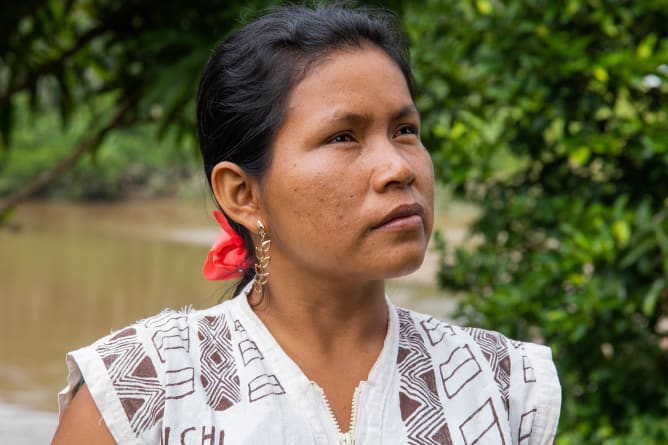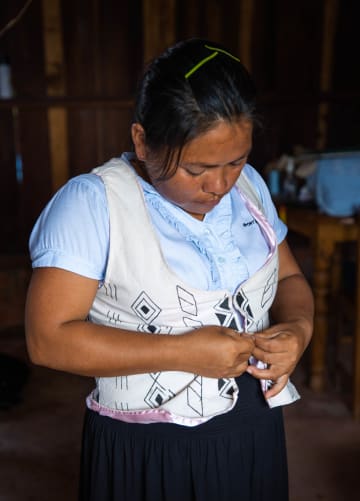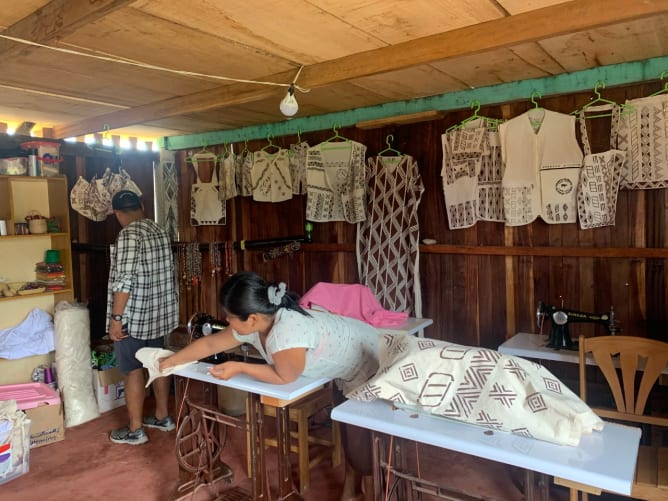Empowering Indigenous Women.
What Specific Challenges Do We Want To Tackle?
Along the eastern slopes of the Andes in Peru, the women of the Cacataibo indigenous tribe still heavily rely on men for economic activities They are a historically marginalized group that remains to be the poorest of the poor, discriminated against because of their origins and gender.
Indigenous peoples’ cultures and livelihoods are inevitably linked with their lands. They often have sophisticated traditional ecological knowledge about their territories. Yet, many of them are losing their lands and livelihoods due to land grabbing, extractive industries, and climate change; and their cultures are under threat. Also, although the Declaration on the Rights of Indigenous Peoples drew particular attention to the needs and rights of indigenous women, several of them continue to be marginalized and socially excluded.
Nevertheless, as workers, entrepreneurs, and custodians of traditional knowledge, indigenous women play a vital role in the economic, social, cultural, and environmental life of their communities and societies.
The women of the Cacataibo have great potential: they traditionally make handicrafts using natural resources from the Amazon Forest, such as seeds, fibers, and natural dyes. However, this group of women wants to add value and quality to their products and become part of sustainable market chains.
What Impact Will This Project Have?
Entrepreneurship represents an opportunity for Indigenous women to improve their lives by cultivating financial independence and stability. To achieve this, BluoVerda Deutschland e.V., AIDER, 2811, and Weltweit are working together to improve the conditions for women to produce their handicrafts.
Through our Project, we want:
• To build their capacity through workshops on design, marketing and accounting;
• To promote connection and engagement between the indigenous women and local designers and experts
• To habilitate a small atelier for women to gather and work on their handicrafts.
The womens’ initial goal is to have the first line of co-designed accessories that are true to their culture, environmentally friendly, and market-ready.
Why Should You Care?
Indigenous women are commonly the poorest of the poor, discriminated against because they are indigenous and women.
The marginalization and social exclusion faced by indigenous peoples and women are being addressed as part of the collective effort to achieve the UN 2030 Agenda for Sustainable Development. Indigenous peoples’ concerns and knowledge are also at the heart of a just transition to environmental sustainability and equity.
Sadly, this region has become one of the main sites for illegal logging and cocaine production, and trafficking in recent years. Peru is the world’s second-largest producer after Colombia. Between 2020 and 2021, four Cacataibo people have been murdered in the same area for confronting the suffocating invasion of their native communities, for standing up to drug trafficking and illegal logging in their territories.
Despite the adversity, the Cacataibo community hopes for better times and stands brave in defense of their forests and territories. Empowering them is an excellent opportunity to improve their living conditions and quality of life. Moreover, globally recognizing the struggles and contributions of indigenous women to sustainable development is crucial to support the ongoing work in their communities.








